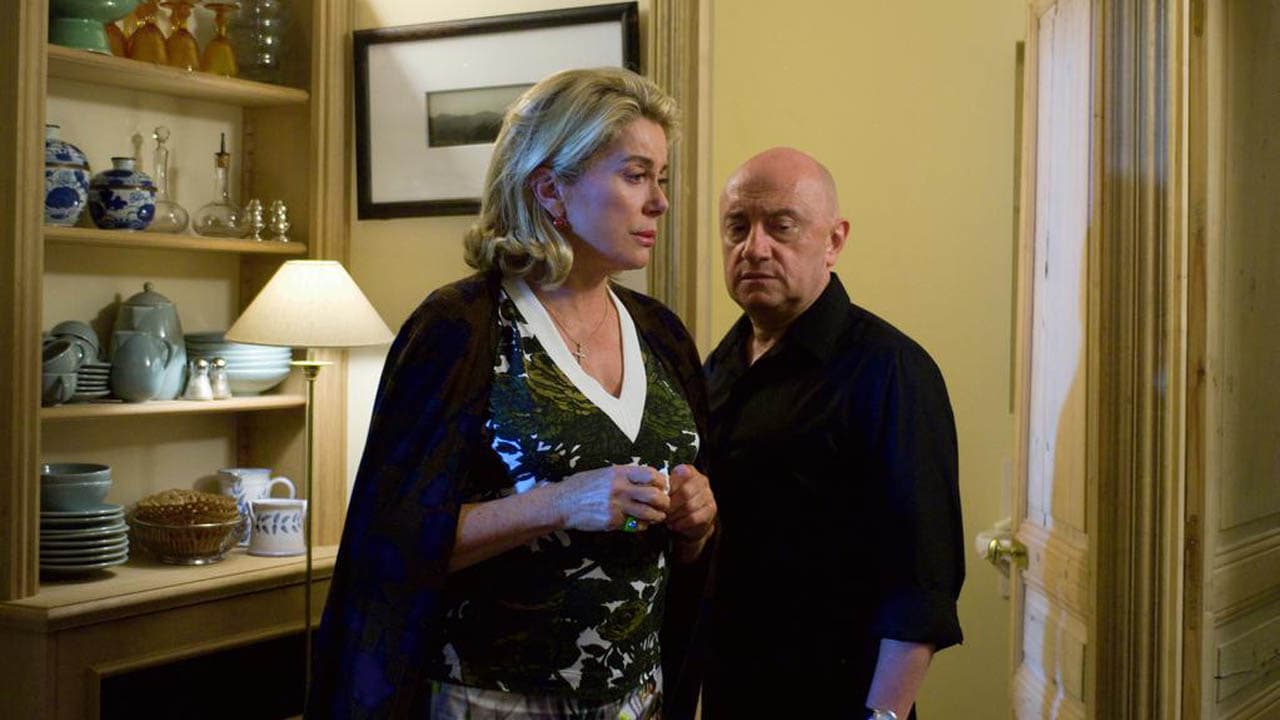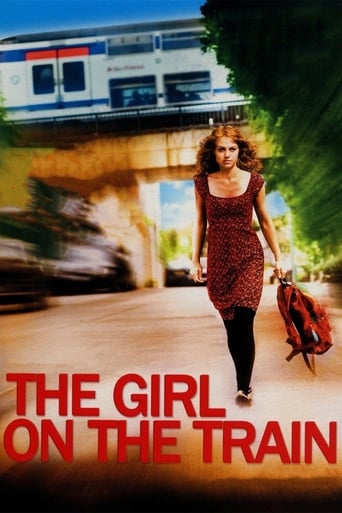

I watched this film in anticipation of what I thought might be a 2016 remake to be released in a few weeks as I write this. However the description of that film sounds like it will veer significantly from this one, with the trailers suggesting an element of mystery and possible horror.This movie just left me cold. It seemed a pointless exercise to run young Jeanne (Emilie Dequenne) through the gamut of experiences here only to have her try to deal with it all by making up a phony story about being attacked. It got to the point where I thought there was an element of mental illness involved with her self disfigurement and lying to authorities. She wasn't even very good about it as a thirteen year old boy saw right through it and asked her point blank - "Why do you tell lies?" Perhaps there was some profound element in the story line that this viewer missed, but this idea of a movie simply ending with no resolution is one I find to be terribly frustrating. Particularly when most of the performances were entirely credible and intriguing enough to suggest a worthwhile story, but in the end there was nothing to it.
... View MoreThis movie is basically pointless. I was drawn in by the storyline only to find that the movie meanders on for some 80-85 minutes or so in the 'les circonstances' except that there really aren't a lot of circumstances that add up to what the protagonist does. Afterward, the protagonist cuts herself a little, draws a few swastikas on herself and says she's been a victim of a hate crime. Her mom knows its not true as her daughter, the protagonist, claims she was attacked because the lawyer Blestein's card was found in her bag (it turns out that Blestein didn't believe in business cards and didn't print any). Then Blestein and the girl's mom try to get the daughter to confess to what she had done. She does, gets a suspended sentence and is seen rollerblading again. What a pointless movie.
... View MoreI disagree with the negative reviewer, who I think missed the point. This film intentionally avoided telling the viewer what to think about the situation or characters in this film, forcing the viewer to come to his or her own conclusions, thereby provoking a lot of thought and discussion. I saw the film with my Jewish girlfriend, and we had completely different takes on the movie and its central character. My girlfriend thought the movie itself was anti-Semitic for its negative depiction of a broken Jewish marriage-- an impression I did not (and still don't) share.The film, based on actual events in Paris in 2006, is divided into two parts. The first part is entitled "The Circumstances" and tells the story of a 19-year-old girl and the affair she unthinkingly falls into with a young French wrestling star. They end up moving in together and he gets involved with a shady drug business, of which she is unaware. He is stabbed by a drug runner and arrested. She returns home to her mother (Catherine Deneuve). Unable to get a job, distraught over her disastrous relationship, the girl impulsively cuts herself, draws swastikas on her stomach, and tells the police she was attacked by a gang of 6 boys on a commuter train outside of Paris because they mistakenly thought she was Jewish (she is not) on the basis of a business card of a Jewish lawyer she said she had in her purse.The second part of the film is titled "The Consequences." The media pick up the story-- a development she hadn't apparently foreseen-- and her mother asks her friend, the Jewish lawyer, for advice. He advises her to bring her daughter to his country home, where he, his son and daughter in law, and their 13-year-old son, who is preparing for his Bar Mitzvah, are spending the weekend. Everyone at the house seems to understand immediately that her story is false, and they want to minimize the amount of trouble she will be in if she confesses. She ultimately admits that she made up the story and writes out a confession to that effect. The French judicial system lets her off easy, and that wraps up the film.But the viewer is left to grapple with unanswered questions. Why did she make up this story? She doesn't seem to have wanted attention, and seeks to avoid the media, whose interest seems to surprise her. With all its obvious holes and weaknesses, why did the police and the media believe the story? (She is, after all, not Jewish.) The film makes the point that anti-Semitic attacks are on the rise in France. Why then does the media focus on an obviously false report of an anti-Semitic attack in which the victim is not even Jewish? Give this film a chance. The filmmakers could have tried to answer all those questions for us, as most American directors would have done, but instead set their viewers the challenge of answering them for themselves. Ultimately, that decision made for a much more interesting movie-going experience.
... View MoreThis Téchiné "issue" film is based on an actual news story of a young woman who pretended to have suffered an anti-Semitic attack on an RER (Réseau Express Régional) train that connects Paris with the surrounding regions. The story was originally adapted for the theater by Jean-Marie Besset and watching Besset's play gave Téchiné the idea for this quickly-shot film.There's much to like, not least of which is a cast that includes Francophone mega-stars Michel Blanc and (Téchiné regular) Catherine Deneuve (as old friends) and lively young actors Nicolas Duvauchelle (of 'Les corps impatients') and Emilie Dequenne (star of the Dardenne brothers' Rosetta. This director is always good at juggling social levels and relationships (see Les Voleurs). But the subject matter seems forced and not super-relevant, a problem also of The Witnesses, but this time the issues arise in a way that makes them seem much less urgent than the AIDS crisis. Why does Jeanne (Dequenne) make up this story? What are its ramifications for actual Jews victimized by anti-Semites--and for the level of anti-Semitism in Europe and the world today? To what extent are individuals more victimized than ever by media invasions of privacy? These aren't questions that get sufficiently explored, either on a personal or a collective level. As a result viewers will experience a complicated set of characters they care about only intermittently, and a central event whose motivation is too vague to make it emotionally involving.Jeanne lives with her mother Louise (Deneuve) in a house with a garden in the suburbs of Paris very near the RER line. They get along really well. Louise earns a living minding children. Jeanne is looking for work, but not very energetically. Louise reads a web notice one day that gives her the fantasy that she can get Alice a job working for a famous lawyer, Samuel Bleinstein (Blanc), whom she knew when they were very young. Jeanne gets an interview. It's not very promising. But she and Louise are going to get plenty of quality time with Bleinstein after Jeanne's lie comes out.Before that, an online meeting: Jeanne connects in a chat-room with Frank (Duvachelle), a tattooed martial arts champion whose background may be dodgier than she realizes, but who is clearly more motivated than her because of his credible pro-sport ambitions. Jeanne and Frank have a roller-blade date and hit it off pretty fast. Before long Jeanne's not only sleeping over with Frank but sharing the responsibility of minding a mysterious electronics warehouse whose owner is away. It turns out the warehouse holds something other than electronics, and Frank's uncooperativeness with some gangster types causes him to wind up in the hospital with a potentially fatal stab wound. Frank, who has already been troubled by Jeanne's habit of lying, decides his involvement with her isn't good for either of them. It's in the wake of Frank's rejection that Jeanne cuts herself and paints on swastikas with a felt pen, then goes to the police with an invented story of being assaulted on the RER. by racist anti-Semites.Somewhat to Jeanne's shock, her story arouses an immediate and rapidly metastasizing media frenzy. She is soon forced to admit her lie. This gets her in trouble with the law. This in turn leads Louise to call on her old friend Samuel, whom she's newly aware of from finding the job at his office on the Internet. We get scenes of Samuel's extended family, a Jewish family, whose members are debating over the coming bar mitzvah of young Nathan. (The young actor has a strong presence; I can't find his name in the casting list. But his father Alex is played by Mathieu Demy and his mother Judith by the vivid Ronit Elkabetz.) 'La fille du RER' (film's French title) is meant to creep up on you. Perhaps to avoid being stamped "thriller" or "crime story," but also to show how violence can pop up unexpectedly in what seem everyday lives, it meanders for an hour before Frank's stabbing. Throughout, the film explores semi-chance interconnections of different people with complex family ties--and some, like Frank, who're estranged from any family--in a world where violence can strike all of a sudden, and is so ever-present it becomes a tool to be used by a young woman to get attention. In her search for identity--missing perhaps due to the absence of her father and the lack of any commitment to work--Jeanne seeks an artificial identity in pretending to be Jewish and a victim of violence. As Stephen Holden notes in his 'NYTimes' Rendez-Vous roundup, "Mr. Téchiné shows his special empathy for the ways youthful impatience can trigger impulsively self-destructive behavior." For young Nathan, identity is being presented on a silver platter in the traditional coming-of-age ritual of a bar mitzvah.Julien Hirsch is responsible for the film's bright, beautiful look. Costume designer Radija Zeggai gets the credit one assumes, for Deneuve's wonderfully frumpy-chic outfits.The film is scheduled for French release March 18, 2009. Its showing in the Rendez-Vous with French Cinema at Lincoln Center is its world premiere.
... View More